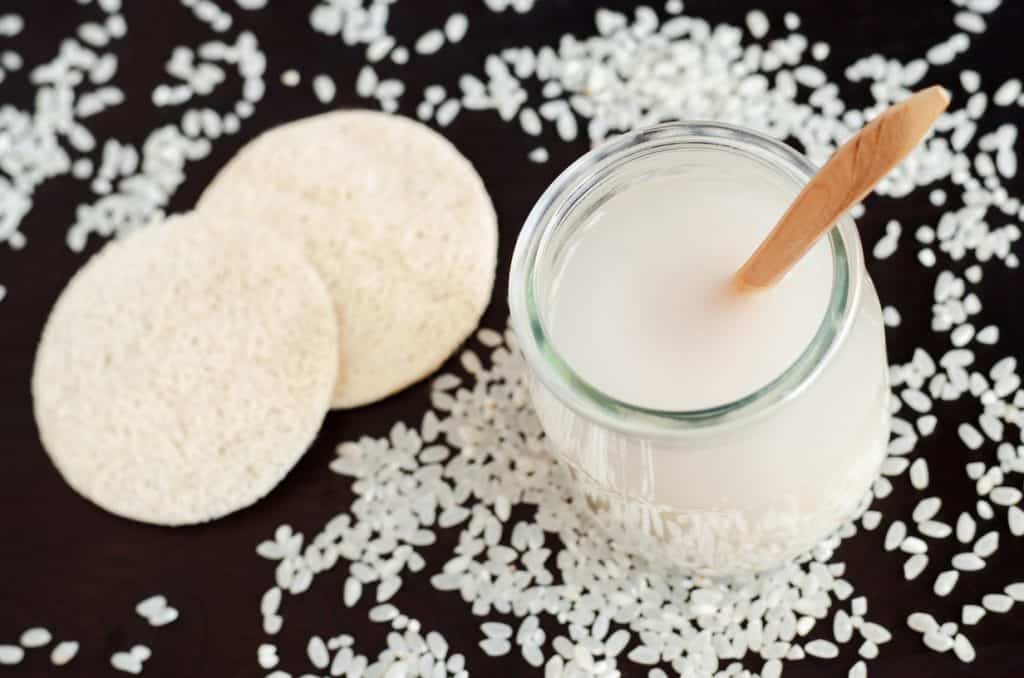
There is little doubt that healthy glowing skin and shiny luxurious tresses are attractive to everyone.
We are all naturally attracted to these things as they are considered a sign of good health universally.
A lot of nutrients and good fats are required to keep the skin healthy and glowing, so it is a good yardstick to assess general health.
And if we are stressed, tired or have gone overboard with caffeine and sugary processed foods, it immediately reflects on our skin.
There is little doubt that good gut health has a direct bearing on the skin’s health. So should we stop wasting money on cosmetic products and only eat fermented probiotic foods for a glowing complexion?
While that is certainly one way to go about it, research is now showing that topical application of fermented beauty products could also facilitate skin and wound healing and can help maintain skin elasticity.
It is no wonder that many top beauty brands are experimenting with the use of fermented products in their skin care lines.
Check out my review of Kombucha Facial Treatment Essence
Benefits of fermented skin care
Acne
Probiotic bacteria found in fermented foods restore good bacteria in the gut to attack candida albicans and other harmful bacterium like P.acnes which directly or indirectly cause acne vulgaris.
The use of fermented foods in skin care for acne can be extended to topical use as well. Many fermented beverages contain lactic acid which is the normal form of AHA or alpha hydroxy acid.
AHA is used extensively in skin peels that eliminate acne scars and restore the skin’s natural glow.
Many dermatologists recommend that teenagers and adults with acne should take a probiotic supplement to increase the good bacteria in their gut. Some doctors also recommend reducing intake of milk and dairy and turning to fermented raw milk instead to stop acne flare ups. It is little wonder that topical use of fermented skin care products could benefit acne sufferers.
Anti-aging
Many yeast based ingredients are increasingly found in anti aging skin care formulations. Examples include sacchromyces cerevisiae, sacchromyces lysate and sacchromyces copper/manganese or zinc ferments.
These extracts protect against infection and also stabilize metals and enzymes used in the anti aging skincare products.
Sacchromyces cerevisiae is a yeast found in bread and because of its stabilizing activity, it is used increasingly in anti aging skin care formulations.
This yeast also provides a base for the metals to attach to and that is why we can find it in many skin care products such as moisturizers, foundations, bronzers, anti aging preparations, acne skin care products and also products targeted to reduce skin redness.
Sachromyces lysate extract is even used in anti aging creams, makeup, and sun and post-sun products as well as in hair care lines.
Eczema
According to Harald Tietze, author of Kefir for Pleasure, Beauty and Well Being, kefir, a product of raw fermented milk, can be used for treating eczema.
Not only can sufferers drink kefir to strengthen their body from the inside to better resist eczema flare ups – even rubbing kefir on the affected areas can help prevent redness, itching and inflammation.
The author recommends leaving kefir on the inflamed skin all night and thanks to this simple remedy, he seen the most severe eczema cases being healed within 4 days of use.
Mr Tietze goes on to mention that the beautiful Queen of Egypt was known to bathe in raw fermented milk and so beautiful was her skin that we talk about it even today.
Healing wounds and common skin problems
Kneipptherapist Juta Stepanovs is the author of the book Skin Saver Remedies. She recommends using herbal products found right in the kitchen to add to aromatic baths for skin care and natural beauty.
Kneipptherapy is based on the combination of hydrotherapy and the age old ritual of healing using bathing herbs. Of importance, says the author, is the use of fermented products such as kefir in the medicinal bathwater. Stepanovs firmly believes that fermented baths can heal the body on three levels:
- The probiotic agents get absorbed through the skin and hence directly into the blood.
- Bathing in healing herbs and fermented probiotic baths can help the body soak up the healing ingredients 30 times faster compared to aromatherapy alone.
- The best part is that the use of fermented therapeutic baths has no negative effect on the digestive organs.
Candida and yeast infections
In Prescription for Nutritional Healing, a bestselling guide to natural remedies, author Phyllis A Balch recommends yogurt for treating vaginal Candida or thrush. Not only does the author recommend eating plenty of plain yogurt with live cultures to get rid of thrush, she also encourages sufferers to apply it topically.
Women with thrush can apply plain, unsweetened yogurt directly into the vagina to supply it with much needed-good bacteria. This helps fight off harmful yeast and Candida that cause fishy odor, discharge and itchiness.
One can also make a vaginal douche by mixing yogurt with water in equal quantities and using the solution to wash the intimate areas. Many vaginal products contain lactic acid and other pH balancing acids.
The good part about the use of probiotics for yeast infections is that women can self administer these products at home. More research on use of probiotic and/or fermented products for treatment of vaginosis can be found here.
Baby and toddler skin issues
Many baby product manufacturers are also using topical probiotics and fermented skin care to prevent and heal diaper rashes, bug and ant bites, sores, baby acne, rosacea, hand-foot-mouth disease, cradle cap, eczema, heat rashes and sores, cuts and other common skin issues.
You could also apply plain, unsweetened yogurt to the diaper rash.
Postmenopausal issues
The skin changes tremendously during menopause; there is an increase in skin folds and wrinkles and many women experience vaginal dryness, skin irritation, rashes, hot flashes etc.
These days, cosmeceuticals with genistein which is an extract of fermented soy are being used to treat skin issues in post menopausal women.
Genisein is structurally similar to human estrogen and can bind to the same receptors. Topical formulations containing genistein are not only seen to prevent post menopausal skin changes like dryness and wrinkling but are said to potentially prevent breast cancer and cardiovascular diseases in Asian women.
Conclusion
More research is definitely needed to ascertain whether fermented skin care products can benefit people with skin issues.
There is, however, little doubt that probiotic fermented foods are very good for overall health and well being. So until manufacturers come up with affordable fermented skin care lines, we can safely continue eating fermented foods to derive their many benefits.

i just want to know the evidence why a fermentated product is good for skin care
and where can i find the material or reference? would you send it back to me
actually i have to prove my opinion so i need a reference.
help me
Hi Sihyo, I’ve referenced a few sources in the actual post. I assume you’re looking for journal papers as a reference. Here are a couple of articles which you may find useful: One Health, Fermented Foods, and Gut Microbiota and Yogurt in Health and Disease Prevention.